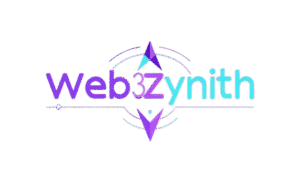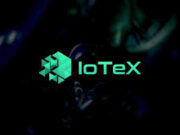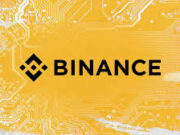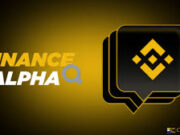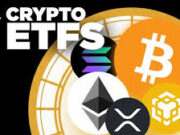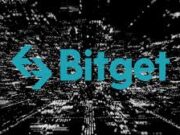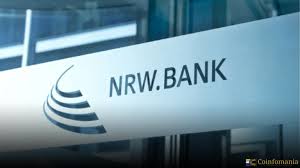In a landmark move for the integration of blockchain technology into traditional finance, Germany’s state-owned development bank, NRW.BANK, has issued a €100 million ($116.7 million) bond on the Polygon blockchain. This issuance, announced on July 10, 2025, marks one of the largest public-sector forays into digital securities in Europe and signals a significant step toward the institutional adoption of tokenized assets. Facilitated by Germany’s progressive Electronic Securities Act (eWpG) and supported by major financial institutions like Deutsche Bank, DZ BANK, and DekaBank, this bond issuance underscores the growing maturity of blockchain-based financial instruments and positions Germany as a leader in regulated digital finance. In this blog post, we’ll explore the details of this groundbreaking transaction, its implications for the financial industry, and its potential role in driving Bitcoin and other cryptocurrencies to new heights.
The Details of the Bond Issuance
NRW.BANK, the largest regional development bank in Germany, issued a two-year bond valued at €100 million on the Polygon blockchain, a layer-2 scaling solution for Ethereum known for its low transaction costs and high scalability. The bond was registered as a “crypto security” under Germany’s Electronic Securities Act (eWpG), which allows securities to exist entirely on blockchain networks without the need for paper-based certificates. This marks NRW.BANK’s first fully digital bond, a significant departure from traditional bond issuance processes that rely on centralized ledgers and intermediaries.
The transaction was facilitated by Cashlink Technologies, a BaFin-licensed crypto securities registrar, ensuring full compliance with Germany’s stringent regulatory framework. Major German financial institutions, including Deutsche Bank, DZ BANK, and DekaBank, acted as joint lead managers, lending credibility and institutional heft to the issuance. The bond’s structure leverages Polygon’s blockchain to enable faster settlement times, enhanced transparency, and reduced administrative overhead, showcasing the operational efficiencies that blockchain technology can bring to capital markets.
According to Michael Duttlinger, CEO of Cashlink Technologies, “This is more than a technical milestone. It’s a signal that public financial institutions are ready to move beyond blockchain pilots and start integrating these systems at scale.” The issuance aligns with Germany’s eWpG, enacted in 2021, which has positioned the country as a hub for regulated blockchain finance by providing a legal framework for tokenized securities.
Why Polygon? The Role of Blockchain in Finance

The choice of Polygon as the blockchain for this bond issuance is significant. Polygon, an Ethereum layer-2 solution, offers low-cost transactions and high throughput while maintaining compatibility with Ethereum’s robust ecosystem. Its selection reflects the growing institutional trust in public blockchains for financial applications, particularly for real-world asset (RWA) tokenization. By issuing the bond on Polygon, NRW.BANK benefits from reduced settlement times—potentially cutting transaction processing from days to minutes—greater transparency through on-chain record-keeping, and lower operational costs compared to traditional financial systems.
This move builds on previous blockchain bond issuances in Germany, such as Siemens’ €60 million digital bond on Polygon in 2023 and KfW’s €100 million bond on the same network in 2024. These earlier issuances demonstrated the feasibility of tokenized securities, but NRW.BANK’s €100 million bond stands out as one of the largest public-sector blockchain bonds in Europe, highlighting the scalability and readiness of blockchain infrastructure for mainstream finance.
The Broader Context: Institutional Adoption and Market Impact
The NRW.BANK bond issuance comes at a time of increasing institutional interest in blockchain technology and tokenized assets. Across Europe, financial institutions are exploring the tokenization of traditional assets like bonds, credit, and funds to capitalize on blockchain’s operational efficiencies. For instance, KfW, another German state-owned bank, issued a CHF 140 million digital bond via the SIX Digital Exchange in 2025, and Italy’s Cassa Depositi e Prestiti (CDP) completed a bond issuance on Polygon as part of European Central Bank (ECB) trials. These developments indicate a broader trend of public and private institutions embracing blockchain to modernize financial markets.
The timing of NRW.BANK’s bond issuance coincides with another significant regulatory development in the U.S.: the Treasury’s removal of crypto broker reporting rules for decentralized finance (DeFi) platforms. This decision, finalized after a Congressional vote in 2025, exempted DeFi platforms from IRS reporting requirements, alleviating a major regulatory burden and boosting investor confidence in decentralized systems. The synergy between these events—Germany’s embrace of blockchain for public-sector finance and the U.S.’s regulatory relief for DeFi—has created a bullish environment for cryptocurrencies, particularly Bitcoin.
Posts on X reflect the market’s enthusiasm, with users noting that NRW.BANK’s bond issuance signals “real adoption” and “faster capital market innovation” in Europe. One user commented, “Germany’s NRW Bank just issued a €100M digital bond on Polygon—a major step showing that institutions are now trusting public blockchains.” Another highlighted the involvement of major banks like Deutsche Bank, stating, “This isn’t pilot season… it’s prime time for real-world assets. TradFi just went full DeFi.” These sentiments underscore the growing perception that blockchain technology is moving from experimental pilots to mainstream adoption.
How This Contributes to Bitcoin’s New All-Time High
While NRW.BANK’s bond issuance is a Polygon-based transaction, its implications extend to the broader cryptocurrency market, including Bitcoin. Several factors connect this development to Bitcoin’s recent surge to a new all-time high:
- Institutional Validation of Blockchain Technology
The successful issuance of a €100 million bond by a state-owned bank on a public blockchain like Polygon reinforces the legitimacy of blockchain technology in institutional finance. As a pioneer of decentralized systems, Bitcoin benefits from this broader acceptance, as investors view it as the cornerstone of the crypto ecosystem. The involvement of major banks like Deutsche Bank further amplifies this confidence, driving capital inflows into Bitcoin and other cryptocurrencies. - Synergy with U.S. Regulatory Developments
The U.S. Treasury’s decision to exempt DeFi platforms from broker reporting rules has created a favorable environment for decentralized technologies, complementing Europe’s progressive stance on tokenized securities. This regulatory clarity reduces perceived risks in the crypto market, encouraging institutional and retail investors to allocate more capital to Bitcoin, which is often seen as a safe haven within the crypto space. - Increased Liquidity and Market Activity
The NRW.BANK bond issuance, coupled with Polygon’s technical upgrade (Heimdall 2.0, which reduces finality time to five seconds), highlights the scalability and efficiency of blockchain networks. As these networks gain traction for institutional use cases, they drive increased on-chain activity and liquidity, which often spills over into Bitcoin’s market. Data from CoinMarketCap shows a 2.78% daily increase in Polygon’s native token (MATIC) following the bond announcement, reflecting positive market sentiment that likely contributed to Bitcoin’s rally. - Reinforcement of Decentralized Finance
The bond’s issuance on a public blockchain aligns with the ethos of decentralization that Bitcoin represents. By demonstrating that even public-sector institutions can leverage decentralized infrastructure, NRW.BANK’s move strengthens the narrative of financial sovereignty, boosting demand for Bitcoin as a censorship-resistant store of value.
Implications for the Future of Digital Finance
NRW.BANK’s €100 million bond issuance is more than a one-off event; it’s a harbinger of a broader shift toward tokenized finance. Germany’s eWpG has created a fertile ground for digital securities, with institutions like Siemens, KfW, DZ BANK, and Commerzbank already issuing blockchain-based bonds. This trend suggests that Europe, and Germany in particular, is emerging as a global leader in regulated blockchain finance, potentially outpacing other regions in the adoption of tokenized assets.
For the crypto market, this development signals a maturing ecosystem where public and private institutions coexist with decentralized protocols. As more financial instruments are tokenized, the demand for robust blockchain infrastructure like Polygon and Ethereum will grow, indirectly supporting Bitcoin’s role as a foundational asset. However, challenges remain, including regulatory fragmentation across jurisdictions and the need for broader investor education to scale adoption.
Conclusion: A New Chapter for Crypto and Traditional Finance
NRW.BANK’s issuance of a €100 million bond on the Polygon blockchain is a pivotal moment for digital finance, demonstrating the viability of blockchain technology in public-sector applications. Supported by Germany’s forward-thinking eWpG and major financial institutions, this transaction not only highlights the operational benefits of tokenized securities but also contributes to the bullish momentum driving Bitcoin to new all-time highs. As regulatory clarity improves globally—evidenced by the U.S. Treasury’s DeFi exemptions and Europe’s embrace of digital bonds—the lines between traditional finance (TradFi) and decentralized finance (DeFi) are blurring, creating a more integrated and innovative financial landscape.
For Bitcoin investors, this moment underscores the growing institutional acceptance of blockchain technology, reinforcing BTC’s position as a leading asset in the crypto market. As one X user put it, “TradFi just went full DeFi,” and Bitcoin is riding the wave of this transformation. The future of finance is on-chain, and NRW.BANK’s bold step is proof that the revolution is well underway.
